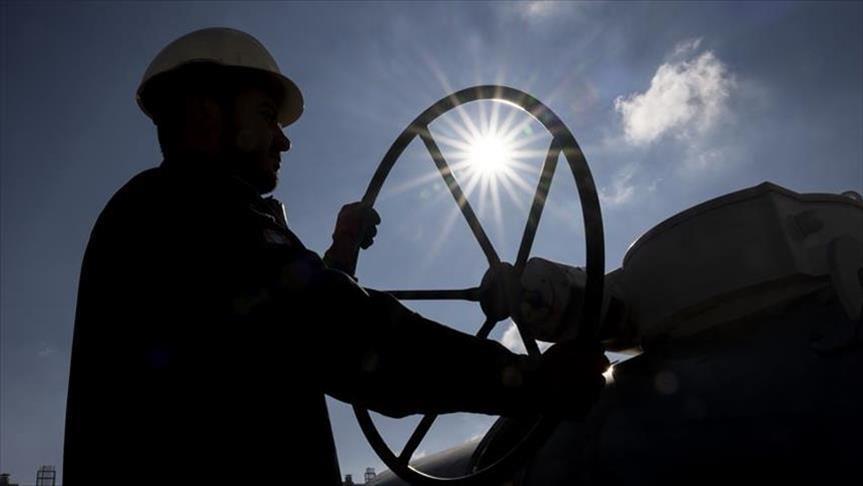Russia and Iran are collaborating on a new pipeline project designed to facilitate large-scale gas transport between the two countries, but experts warn that it could undermine Iran’s own gas exports.
The ‘Comprehensive Strategic Partnership Agreement’ signed between Russia and Iran aims to deepen energy cooperation, including joint oil, natural gas, and renewable energy projects, as well as modernizing energy infrastructure and diversifying trade routes.
Russian President Vladimir Putin previously announced that Russia will initially supply 2 billion cubic meters of gas annually to Iran, with plans to expand this volume to 55 billion cubic meters. Moscow is also exploring energy collaboration opportunities in the oil sector.
The proposed pipeline would transport Russian gas to northwestern Iran via Azerbaijan, with an alternative route through Turkmenistan to northeastern Iran also under consideration.
This initiative is part of Russia’s broader strategy to diversify energy export routes and position Iran as a key transit country for Russian gas flows to Asian markets.
Additionally, Russia is developing a railway project from St. Petersburg to Iran’s southern port of Bandar Abbas, to enhance trade routes to global markets via the Indian Ocean. This move underscores Moscow’s ambition to enhance Iran’s role as a strategic transit hub beyond just energy cooperation.
– Iran’s energy cooperation with Russia raises questions
Speaking to Anadolu, Dalga Khatinoglu, an expert on Iran energy issues, stated that Iran’s energy cooperation with Russia presents a contradiction as ‘Iran is trying to export Russian gas while it cannot process its own gas.’
Despite the obvious benefits to Russia, Iran’s role in the collaboration remains ambiguous, he argued.
Katinoglu highlighted Iran’s financial difficulties, exacerbated by Western sanctions and economic challenges, making it hard for Tehran to pay Russia in strong currencies like the US dollar or euro.
He added that any substantial results from an energy cooperation between Russia and Iran would only materialize in the long term and are unlikely to have any immediate effect on energy markets.
Iran exports electricity to Pakistan and Afghanistan and supplies natural gas and electricity to Iraq. Iraq remains heavily dependent on Iranian gas imports, Khatinoglu said.
He highlighted Iran’s role in regional energy supply, stating, ‘If Russia supplies electricity and gas to Iran, it could help Tehran fulfill its energy export commitments to neighboring countries.’
Russia and Iran have a history of signing memorandums of understanding that never progress to the contract stage, Khatinoglu said.
‘Over the past 20 years, Russia and Iran have signed memorandums of understanding worth $100 billion for energy projects, yet only a few have reached the contract stage,’ he added.
Gazprom reported a $6.8 billion loss in 2023 and an additional $3.2 billion loss in the first nine months of 2024, which may partly explain why the company failed to honor its 2022 agreement to develop projects worth over $40 billion in Iran, he said.
Khatinoglu said Russia could play an active role in Iran’s energy sector in three key areas.
Modernization of Iran’s electricity and gas grid is a critical need as 13% of Iran’s generated electricity and 11% of its gas are lost during production, distribution, and transmission, he highlighted. ‘Upgrading the grid could help reduce these losses,’ he said.
The development of new nuclear reactors could be a strategic step in boosting Iran’s energy capacity, he said and added, ‘Lastly, Russia’s exports of electricity, gas, and petroleum products to Iran could further strengthen energy cooperation between the two countries.’
– Iran’s potential and the role of Western sanctions
Despite holding the world’s second-largest natural gas reserves, Iran’s outdated infrastructure and Western sanctions have hindered its production capacity.
Khatinoglu emphasized that Russia cannot provide a solution to Iran’s energy constraints, as both countries remain competitors in global energy markets.
He added that Western sanctions have blocked Iran and Russia from accessing international financing and advanced technology, making large-scale energy cooperation between the two nations increasingly difficult.
‘For Iran’s vast natural gas reserves to play a crucial role in the global energy transition, sanctions must be lifted,’ Khatinoglu concluded.

